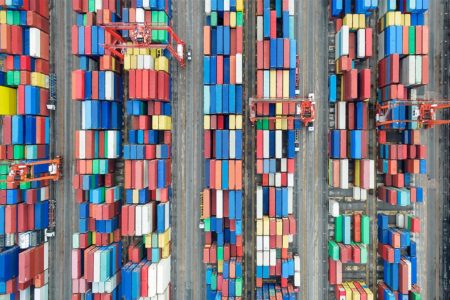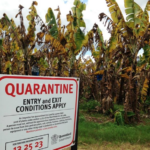April 10, 2020 – Global supply chains are the trade routes of the 21st century. Like the Silk Road from China to Europe in the Middle Ages, seen as the avenue by which the Black Death became a Eurasian pandemic, COVID-19 owes much of its spread to the manufacturing partnerships and vendor relationships that have bound China to global high-tech and big pharma companies and their markets. This observation may be upsetting to supply chain orthodoxy. Nevertheless, there is no doubt growing evidence to support the hypothesis.
Very few in high-tech and biopharma would suggest that there could be a cause and effect link. That’s because these industries, as have so many other business sectors, have fixed upon global supply chains for their operating model. To think that in pursuing lower labour costs by going overseas, that businesses could become facilitators for a global pandemic. What a jarring conclusion to reach.
So is it true?
Apple, Cisco, Dell, HP, Intel, Google, Pfizer, GSK, Roche, and Novo Nordisk, to mention a few of the big North American and European high-tech and big-pharma companies, all have invested in China where they do both research and manufacturing. Last year these were some of the many companies pressured by the United States to leave the country because of the trade and tariff war started by Donald Trump. With the war cooling down in recent months, the reshaping of those supply chains has been minimal, hardly putting a dent in the trading of goods and services.
For the most part here in 2020, China’s technology supply chain remains highly integrated with global manufacturers. Even in the face of a tariff war with the United States, the world’s largest trading nation, China, continues to be fueled by globally integrated supply chains. And where trade goes, so go humans and the diseases they carry.
Wuhan, the epicenter of the COVID-19 outbreak was referred to as a transport and manufacturing hub as significant as Chicago in a Bloomberg News, January 23, 2020 article, which described the role that city played within China. Wuhan was the centre of a series of complex supply chains providing just-in-time manufacturing for high tech and big pharma. Wuhan’s leading industries included optoelectronics, chip fabrication, flash memory technology for smartphones and computers, parts for the automotive industry, and research and manufacturing of pharmaceutical products all tied to 230 of the Fortune Global-500-listed companies.
Along with the flow of manufactured goods, there was an equal amount of human traffic. From business development to engineering staff, this free flow of people to and from China and Wuhan, in particular, did for the COVID-19 virus, what medieval trade between the Orient and Europe did to spread the Black Death.
In an article published in eWeek on April 2, 2020, author Charles King, describes our one advantage over the global pandemics of the past. Those high-tech and big pharma companies represent organizations that can help us fight back by detecting and analyzing COVID-19 at a pace much faster than was possible in the 14th century, or even early in the 20th century with the 1918 Spanish flu pandemic. The speed of research and the ability to crowdsource knowledge from a global community focused on both treatment, and a vaccine cure is unprecedented in human history.
King states, “When confronted with extraordinary events, it’s commonplace for people to look to the past for guidance and insights.” Global trade relationships have in the past produced both the good and the bad. In the present day, this continues to be true. Let’s hope we have learned enough to not have a repeat of a COVID-19 event in the future. It is the right time for these businesses to rethink their global supply chain strategies.
















